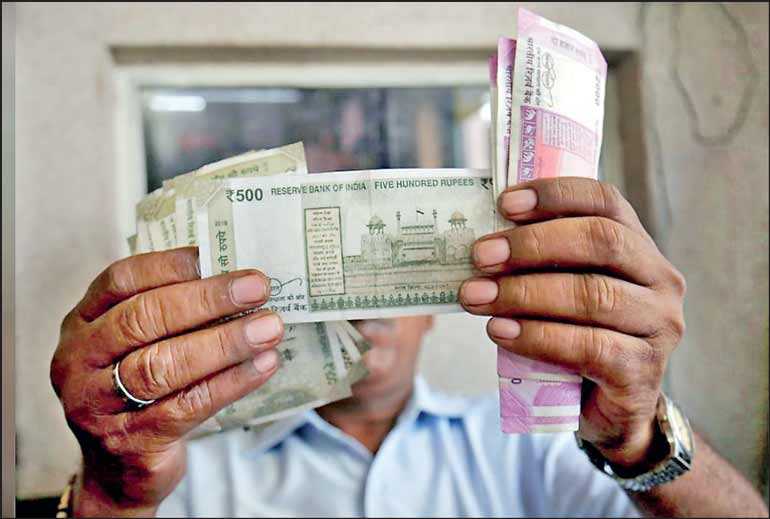Monday Feb 23, 2026
Monday Feb 23, 2026
Friday, 15 March 2019 00:00 - - {{hitsCtrl.values.hits}}

Reuters: Investors are bullish on the Indian rupee for the first time in nearly a year, a Reuters poll showed, as a recent surge in popularity of the country’s ruling party is expected to bode well for its alliance in the upcoming national elections.
Long bets on the rupee returned after early April last year, the poll of 11 respondents showed, with investors regaining some of their lost appetite for the currency that was the worst Asian performer in 2018 with a more than 8% loss to the dollar.
India will hold general elections in seven stages starting 11 April and Prime Minister Narendra Modi’s Bharatiya Janata Party (BJP) is likely to benefit from tensions with Pakistan.
Political analysts say the anti-Pakistan wave has become a rallying point for his Hindu-nationalist BJP after India’s armed forces clashed with its neighbour last month.
Foreign inflows into Indian equities and debt markets have surged, with $1.78 billion pouring in this month as of 12 March. That compares with inflows of $1.58 billion in February and $788 million outflows in January, according to National Stock Exchange data.
Long positions in the yuan remained intact for over two months now, and strongest in the region in the current poll, despite a slew of poor economic data from China pointing to a slowdown.
Investors pinned their hopes on the progress in China’s trade talks with the United States, and the sentiment was also aided by additional tax cuts and infrastructure spending announced by the Chinese government.
Investment picked up speed in the world’s second largest economy in the first two months of the year as the government fast-tracked more road and rail projects, data showed on Thursday.
The poll respondents maintained bullish positions on the Thai baht, the Malaysian ringgit and the Singapore dollar since the turn of the year.
However, the long bets on the baht, the best performing Asian currency, fell drastically, to their weakest level since mid December last year.
The Thai January exports declined 4.7% and an official said that the figures are likely to contract in the first quarter as well.
Thailand goes to polls on 24 March in the first elections since a military coup.
Investors held bearish positions on the Korean won for a fourth consecutive poll with short positions on the currency at their highest since November last year as Asia’s fourth-largest economy continues to reel under further cooling of demand from its major market China.
The Reuters survey is focused on what analysts believe are the current market positions in nine Asian emerging market currencies: the Chinese yuan, South Korean won, Singapore dollar, Indonesian rupiah, Taiwan dollar, Indian rupee, Philippine peso, Malaysian ringgit and the Thai baht.
The poll uses estimates of net long or short positions on a scale of minus 3 to plus 3.
A score of plus 3 indicates the market is significantly long US dollars. The figures included positions held through non-deliverable forwards (NDFs).